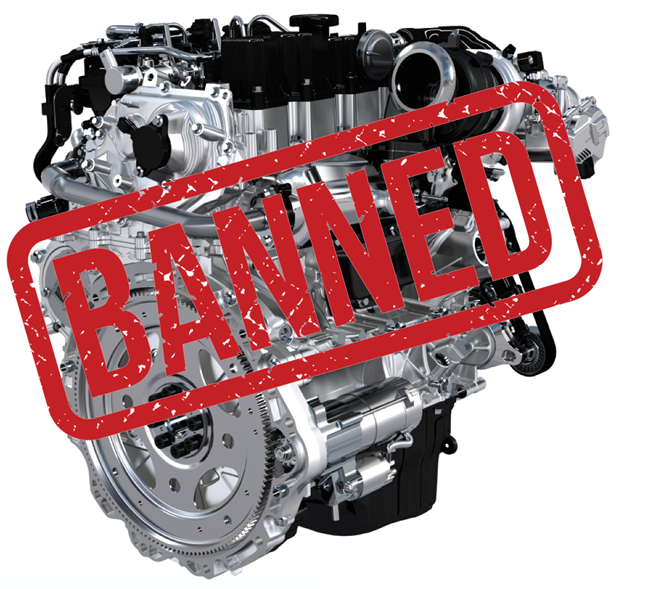We use cookies to ensure that we give you the best experience on our website. If you continue without changing your settings, we will assume that you are happy to receive all cookies on the Business Car website. However, if you would like to, you can change your cookies at any time

The start point for the best source of fleet information |
BVRLA says fleets need flexibility from government on ICE ban
Date: 29 July 2020 | Author: Sean Keywood

Banning the sale of new petrol, diesel and hybrid vehicles across the board in 2035 would be a mistake, according to the BVRLA - although car fleets look well placed to meet the deadline.
The rental and leasing industry organisation says that the wide diversity of vehicles and business models in the fleet sector means that the UK government's plan would represent an unambitious target for some operators, but a near-impossible one for others.
In its response to the government's consultation on the 2035 plan - an advance on the previously announced date of 2040 - the BVRLA says policymakers should instead focus on individual market segments, providing the appropriate support and phase out targets for the relevant vehicle use cases.
To support this argument, it has divided its membership into six segments - car fleets, retail, car clubs, rental cars, vans and specialist vehicles - and provided estimated dates when ICE vehicles can be phased out for them given current levels of support.
It's here that car fleets score well, as according to the BVRLA they and car clubs are the only two segments on course to meet the proposed 2035 target, compared with 2038 for retail and 2040 for the other segments.
However, the BVRLA says that if the support it is seeking from the government is given, then car fleets could be all-electric by 2028, and all other sectors except for specialist vehicles would meet the 2035 deadline.
Among the measures it says car fleets need are a further year's extension for the 0% zero-emission vehicle BIK rate, a freeze in this rate post-2025, and continued foresight of any removal or changes to grants and incentives.
The BVRLA also wants unchanged OpRA rules for salary sacrifice schemes, and no change to the classification that electricity is not a fuel for BIK purposes.
This is alongside a host of other measures affecting general EV adoption, including replicating EU incentives post-Brexit, and measures to achieve price parity between EVs and ICE vehicles, including extending the plug-in vehicle grant until at least 2025.
The BVRLA also thinks major support for charging infrastructure will be required.
On the subject of hybrid vehicles - included in the proposed 2035 ban having not been part of the 2040 announcement - the BVRLA says an impending ban would cause manufacturers to reduce investment in this technology, meaning a lack of product on the market well before the final ban date, potentially leaving fleets stuck for vehicles if pure EVs were not ready to take over the whole market by then.
It therefore says that the government should regularly review progress towards any phase out dates, and only end hybrid vehicle sales if pure EV supply, affordability and infrastructure is able to meet all fleet requirements.
BVRLA chief executive Gerry Keaney said: "Our response is the culmination of the biggest policy engagement process we have ever undertaken, involving dozens of stakeholders and BVRLA members from across the rental, car club, leasing and fleet management sectors.
"The net-zero transition is a huge undertaking and the government must give specific consideration to the demand measures that will drive uptake, the supply measures that will ensure sufficient vehicles are available and the infrastructure measures that will meet different fleet operating requirements."
As well as its concerns about the 2035 proposal, the BVRLA has also raised a note of caution regarding the government's pre-existing plan for net-zero carbon emissions by 2050.
It has published a report, using modelling from Cambridge Econometrics, which states that the government will need to invest nearly £100 billion between now and 2050 if it is to have any chance of meeting its target.
Keaney said: "The government is about to set road users some very ambitious and expensive targets for decarbonising their fleets.
"BVRLA members are up for the challenge, but the government needs to show similar ambition and investment in providing a supportive policy environment and an effective tax and incentive regime.
"Zero-emission vehicle mandates are not the answer. We need to align our electric vehicle strategy with our closest markets in the EU, where grants and incentives have proved much more successful."











